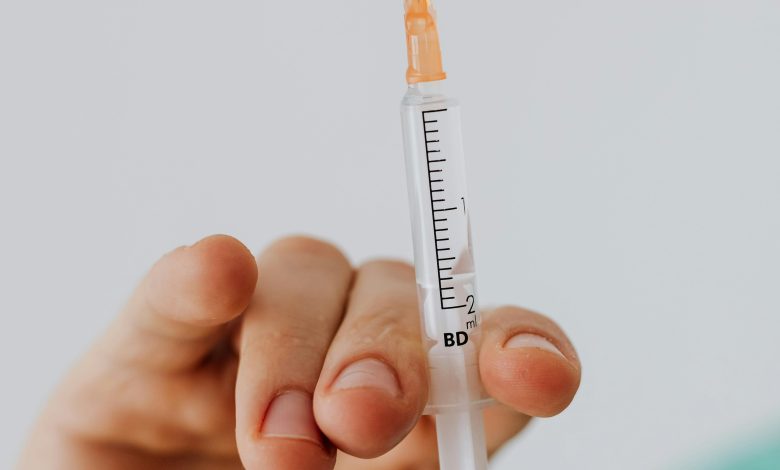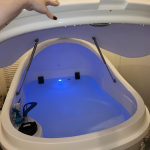Understanding Peptide Therapy: Benefits and Applications

Medical advancements often seem complex and out of reach, but peptide therapy breaks this mold, offering a pioneering yet fundamentally natural approach to healing and wellness. A shining example of this innovative treatment can be found within the pioneering practices at a peptide clinic in Florida, a clinic that is at the forefront of applying the body’s intrinsic healing abilities to foster recovery and improve health. Peptide therapy, a term that may appear to be plucked from a science fiction novel, is increasingly becoming a reality, with potential implications that could alter our approach to medicine.
The versatility of peptide therapy extends beyond the realm of physical health, offering potential benefits for mental well-being and cognitive function. Certain peptides have shown promise in improving memory, focus and overall brain health, suggesting a future where peptide therapy could play a role in addressing cognitive decline and enhancing mental performance. As research continues to unravel the intricacies of peptides and their effects on the body and mind, the possibilities for their therapeutic application seem boundless. Read on to learn more about the different benefits and applications of peptide therapy.
Defining Peptides and Their Significance
Peptides, essentially short chains of amino acids, act as the building blocks for proteins but are more easily absorbed due to their smaller size. These molecules function as messengers within the body, directing various physiological responses. Their applications range from hormone regulation to recovery enhancement after physical exertion, showcasing a broad and impactful range of uses. Their diminutive size and targeted action allow for treatments that are more focused and tend to carry fewer undesirable effects compared to more conventional drugs.
The Working Principle Behind Peptide Therapy
The principle underlining peptide therapy is its straightforward approach—by introducing specific peptides into the system, one can stimulate the body to react in beneficial ways. Whether it’s promoting skin collagen for a rejuvenated appearance or boosting muscle growth, peptide therapy employs the body’s own mechanisms to enhance health without relying on external substances or undergoing invasive procedures. This method not only promises a reduction in side effects but also a more attuned and effective treatment protocol.
Contrasting Peptide Therapy with Conventional Medication
Conventional medications often approach treatment with broad strokes, focusing on alleviating symptoms rather than addressing the root cause. Peptide therapy, conversely, opts for a more congruous approach with the body’s natural systems, offering customized treatment plans. Peptides, being naturally occurring and integral to bodily functions, present a reduced risk of side effects and are more efficiently processed and used by the body, representing a significant shift in how we address and manage health conditions.
Amplifying Natural Healing Through Peptide Therapy
A captivating feature of peptide therapy is its capacity to intensify the body’s inherent healing mechanisms. Specific peptides have the potential to hasten the repair of bones or muscles, introducing a valuable tool for orthopedic practices and recuperation periods. This aspect of peptide therapy opens up possibilities for drastically reduced healing times, ushering in a future where recovery from injuries can be markedly accelerated through precise, targeted interventions.
Peptides’ Role in Enhancing Sleep and Alleviating Stress
Beyond physical rehabilitation, certain peptides offer benefits affecting sleep patterns and stress management, embodying a holistic approach to healthcare. Enhanced sleep quality contributes to improved overall well-being, mood and cognitive ability. Additionally, mitigating stress has tangible benefits for physical health, potentially reducing the risk for conditions linked to stress, thus underlining the versatile and far-reaching impact of peptide therapy.
Considering the Safety and Regulatory Aspects
Despite its promising outlook, navigating the landscape of peptide therapy necessitates caution, prioritizing safety, and efficacy above all. Comprehensive clinical studies and rigorous research are essential to fully articulate the advantages and possible side effects of peptide therapy. The regulatory environment is adapting, with institutions like the FDA playing a crucial role in monitoring these treatments to guarantee high safety standards. This oversight is vital to curb potential misuse and ensure that the benefits of peptide therapy can be realized in a secure and effective fashion.
The exploration into peptide therapy’s potential reveals the advent of a new chapter in medical science, where treatments strive not only to combat symptoms but to elevate the body’s innate healing capacity. This convergence of natural biological processes and scientific advancement opens up exciting prospects for healthcare, positioning peptide therapy as an area of considerable interest for future developments. As the medical and holistic health communities learn more about peptide clinics and their groundbreaking work, the significance of these advances becomes increasingly apparent, heralding a new direction in medical treatment and patient care.





